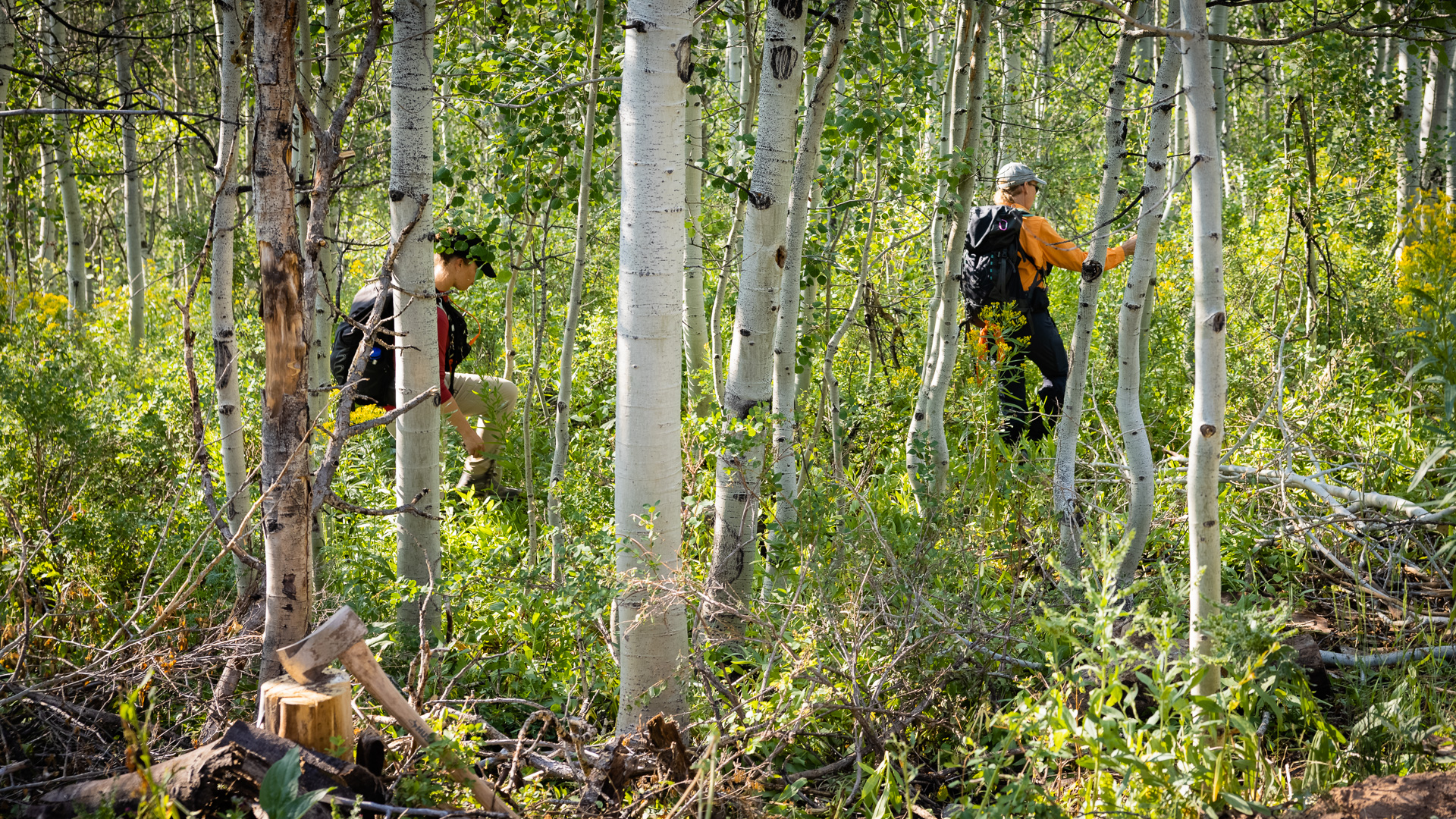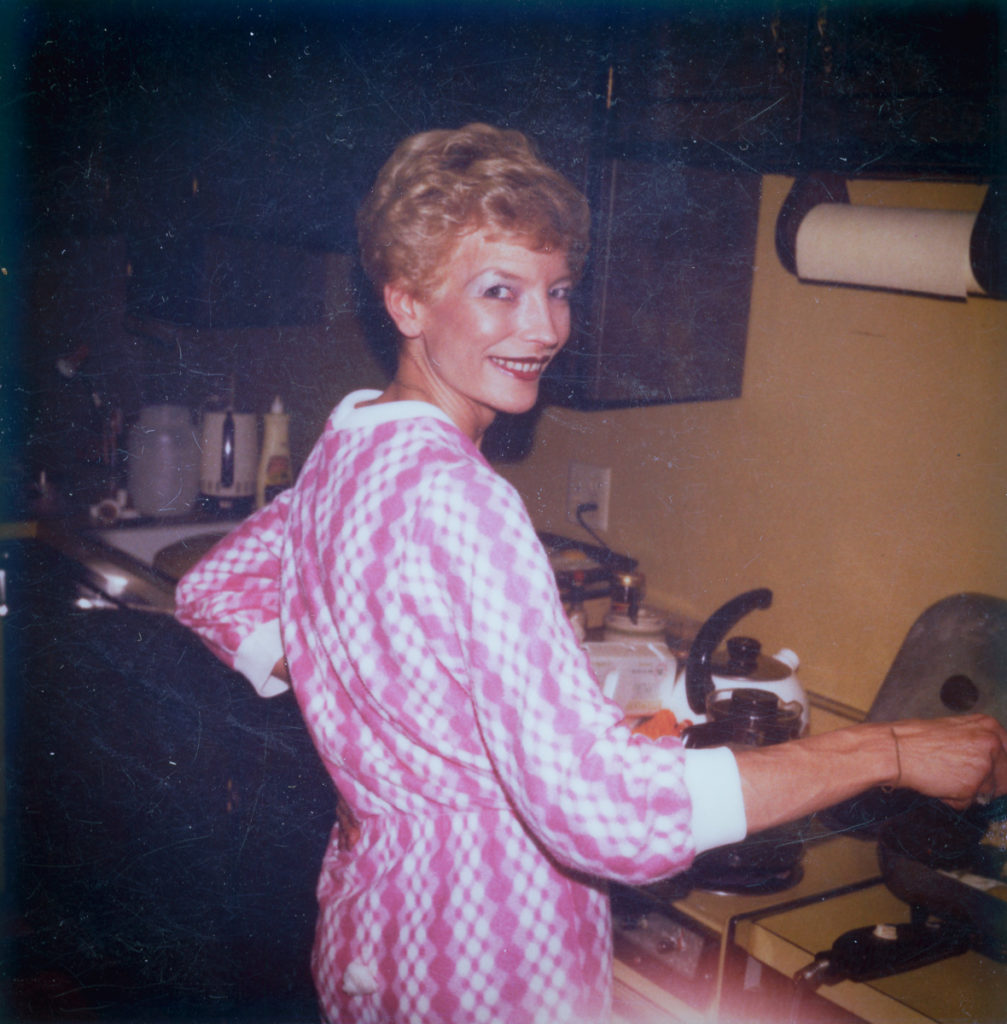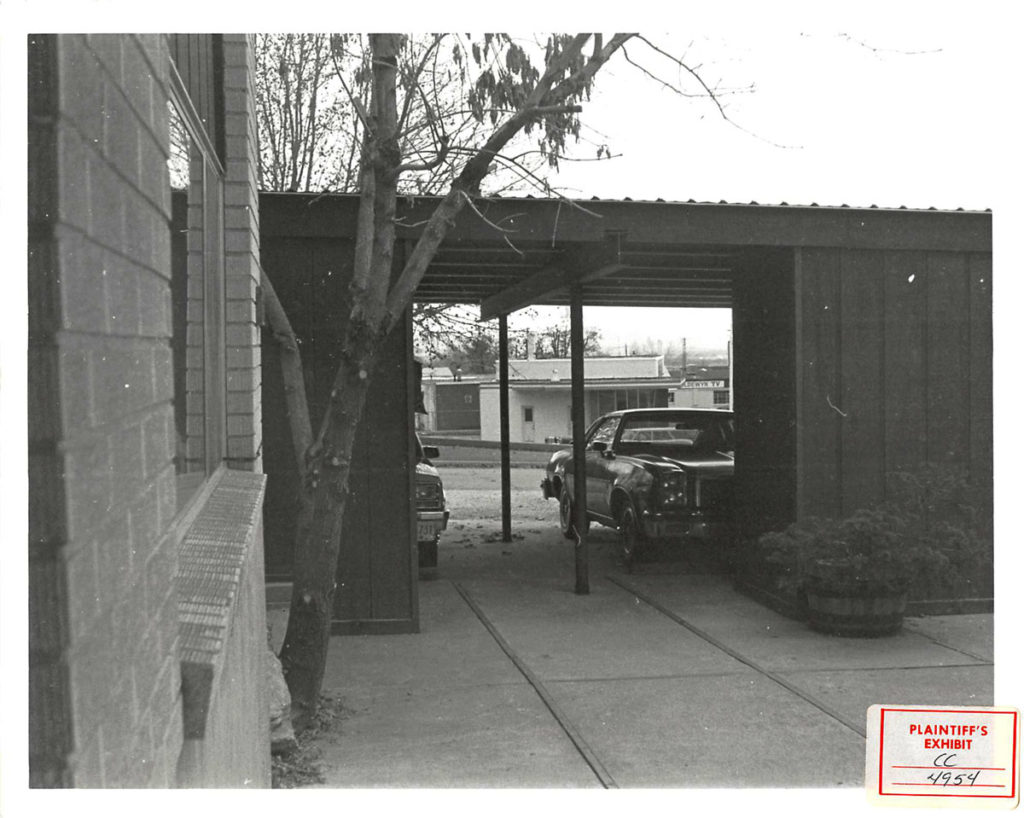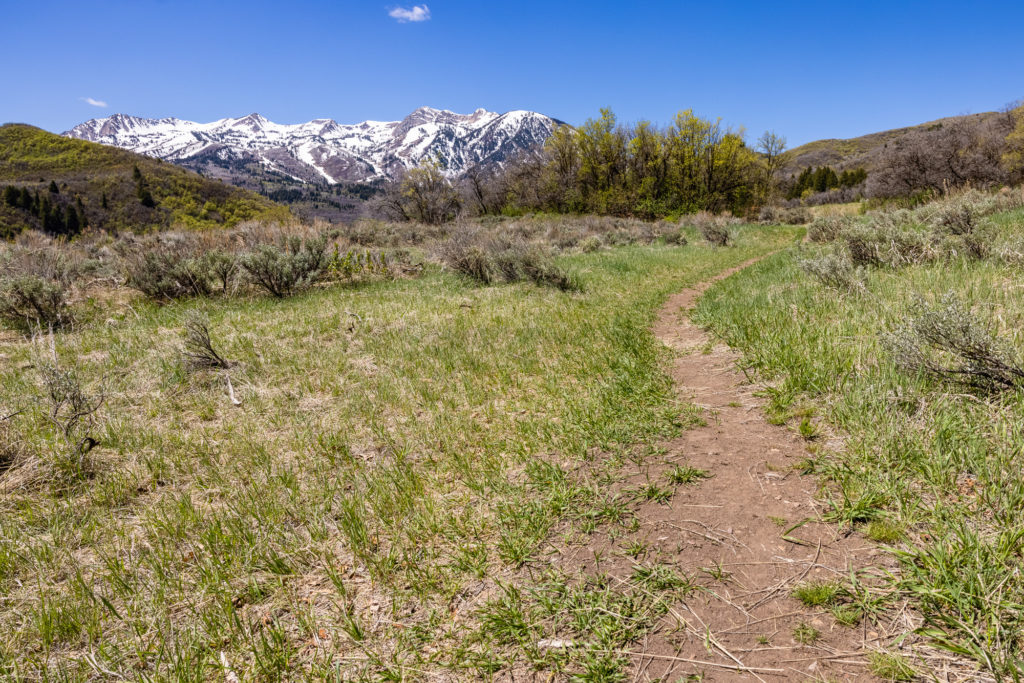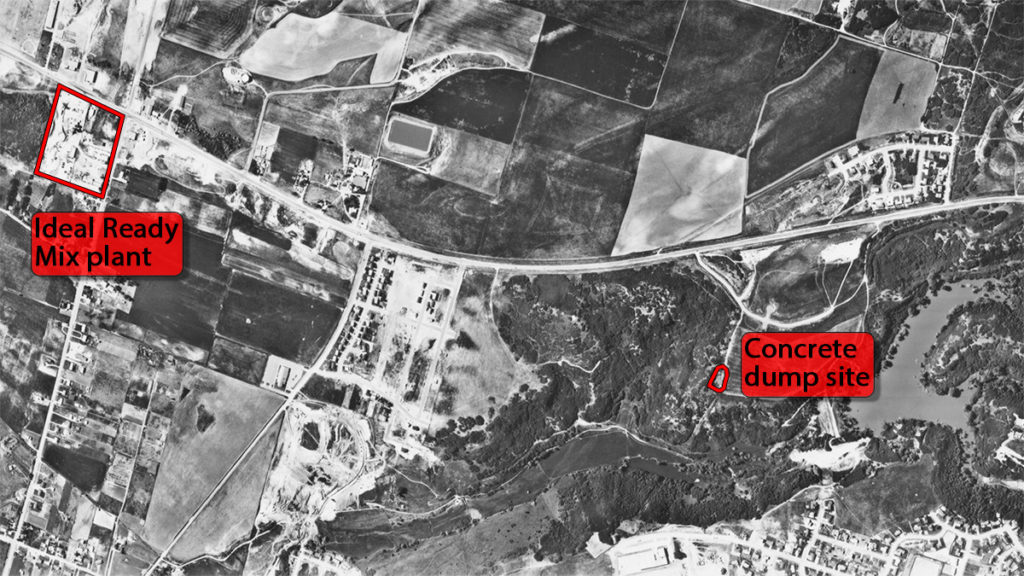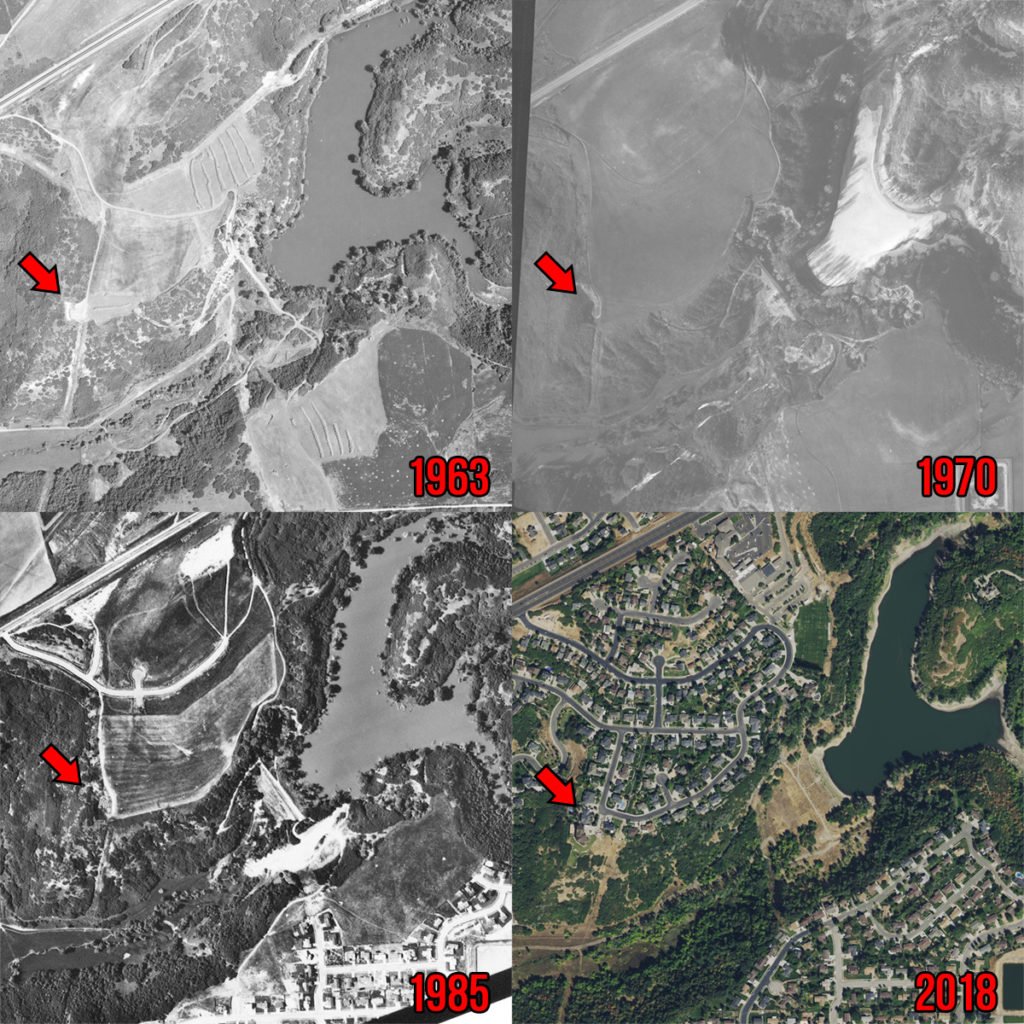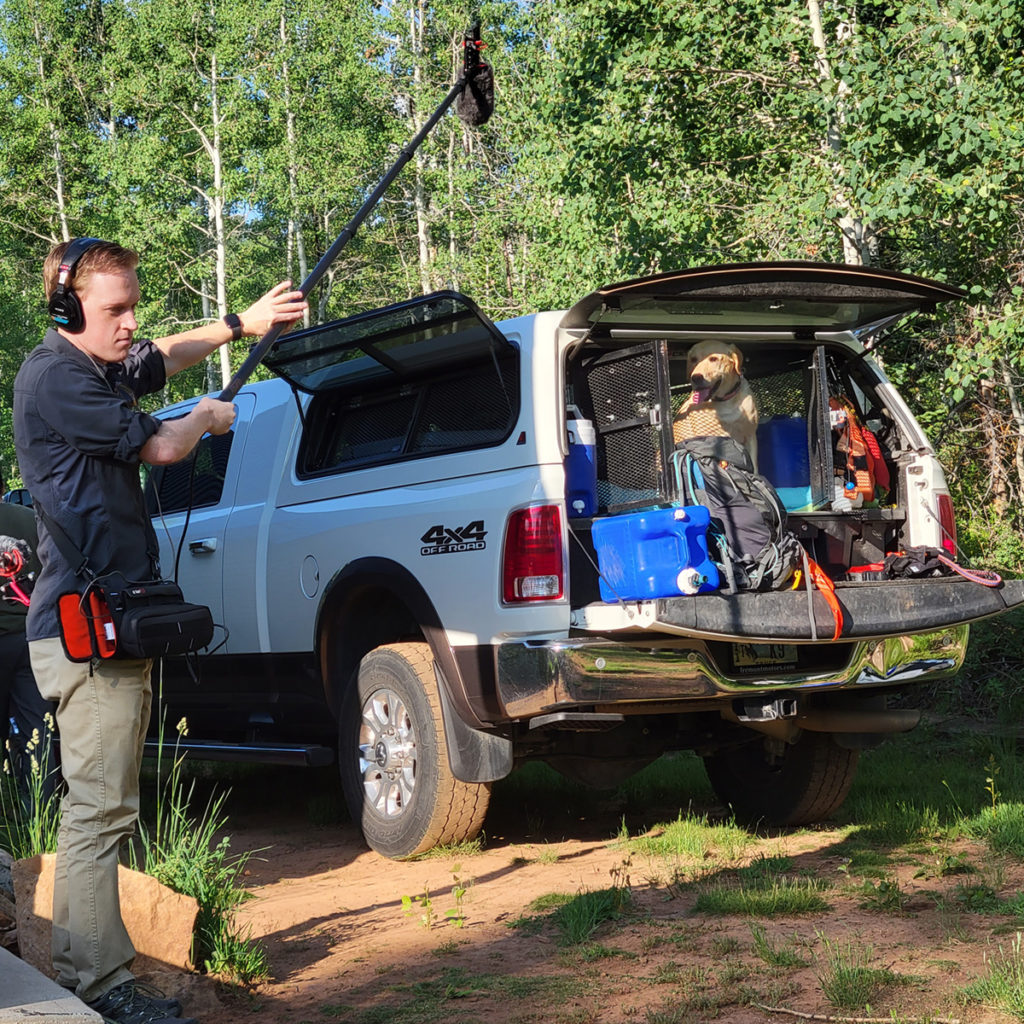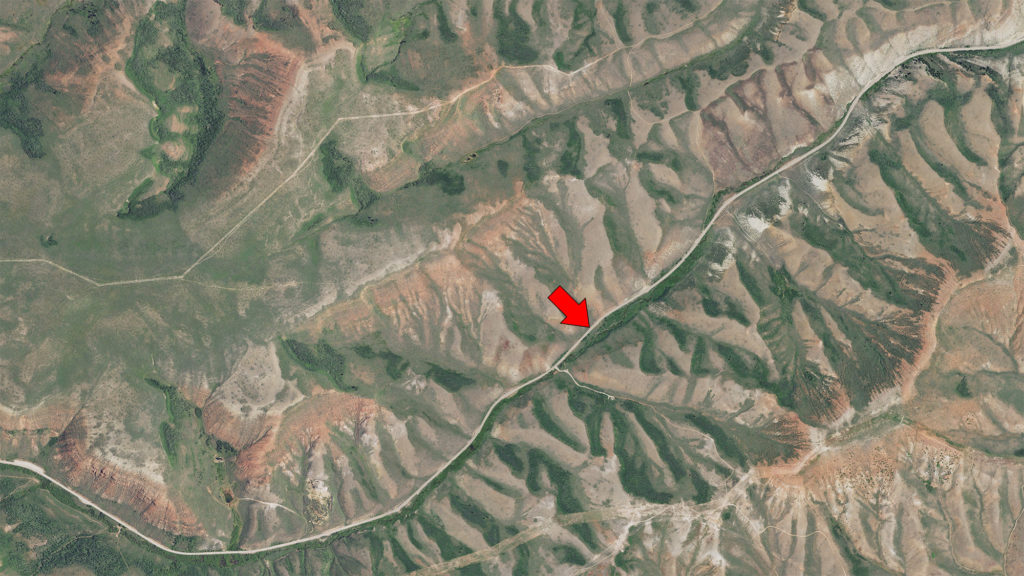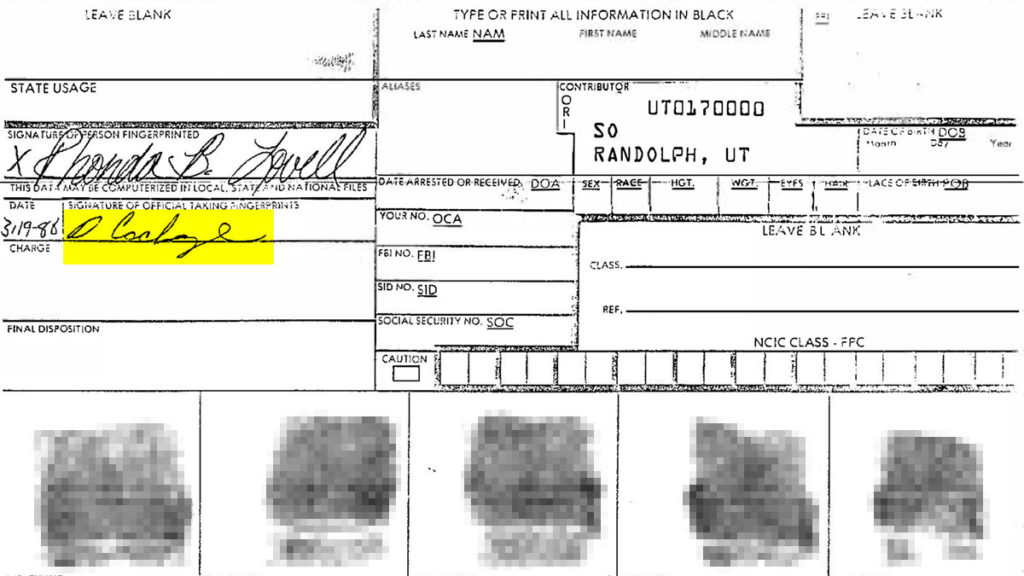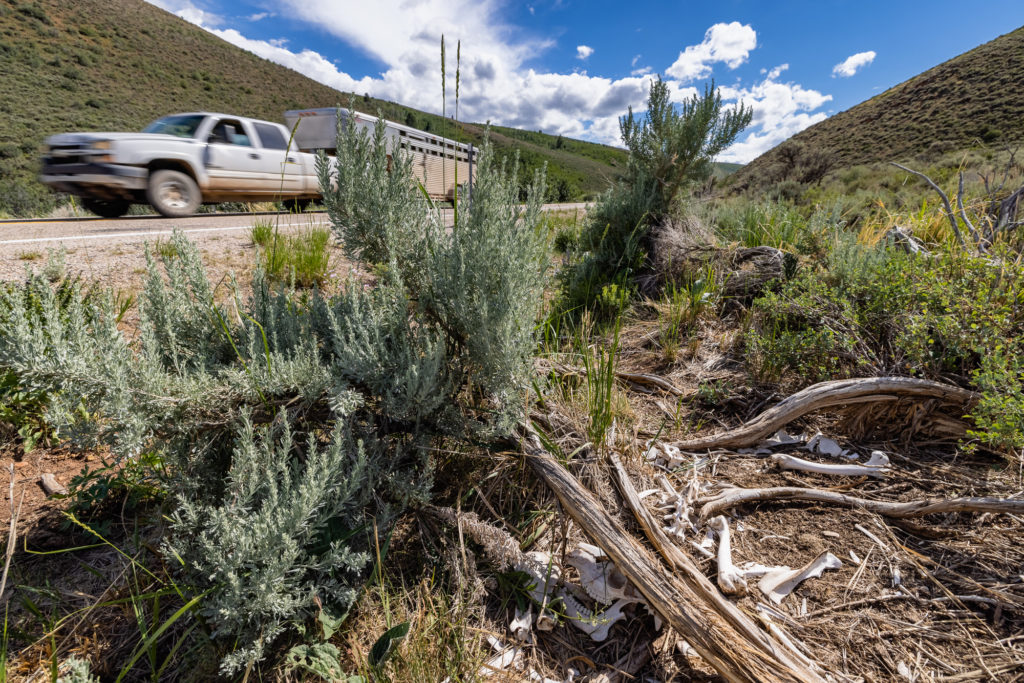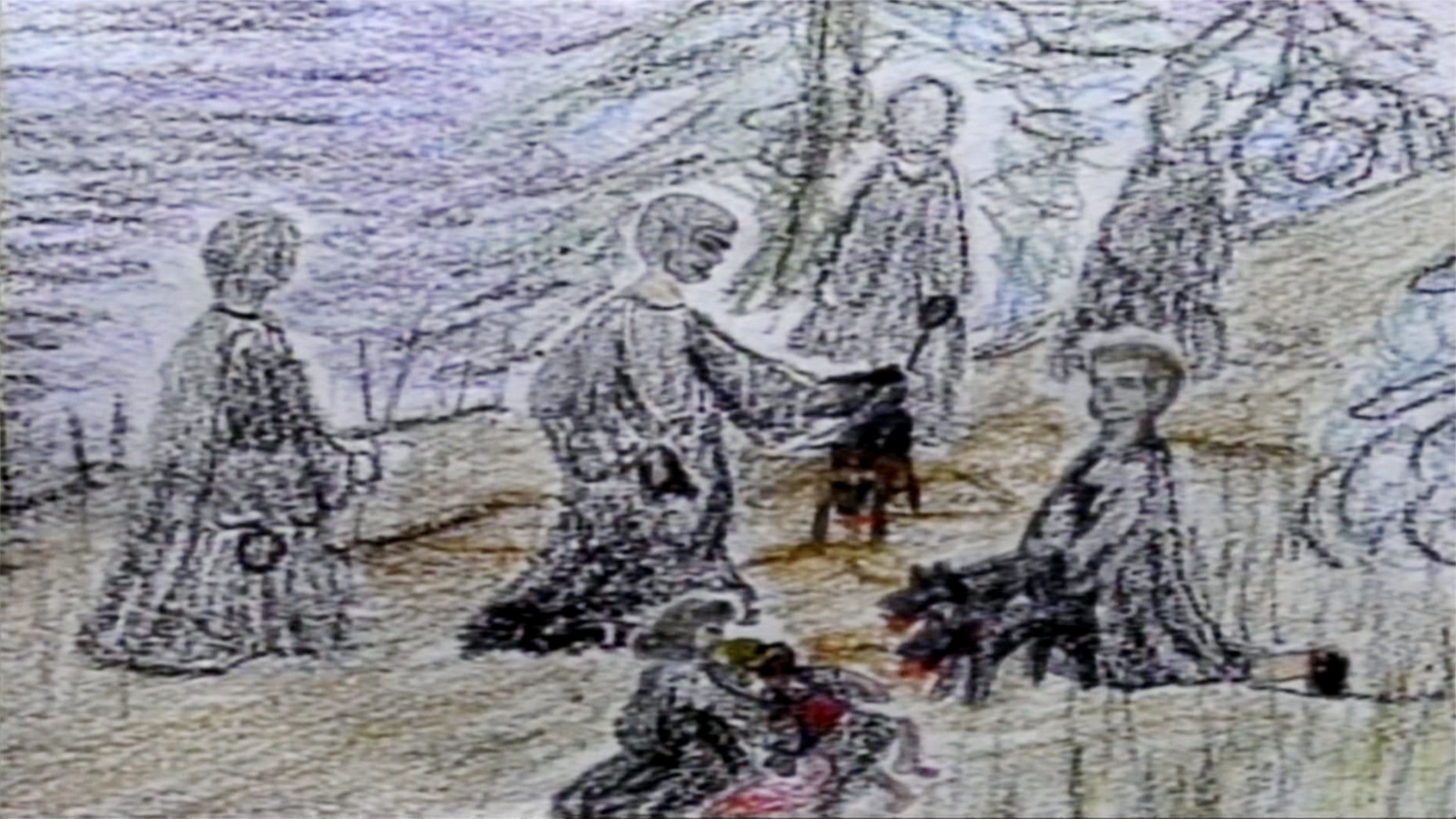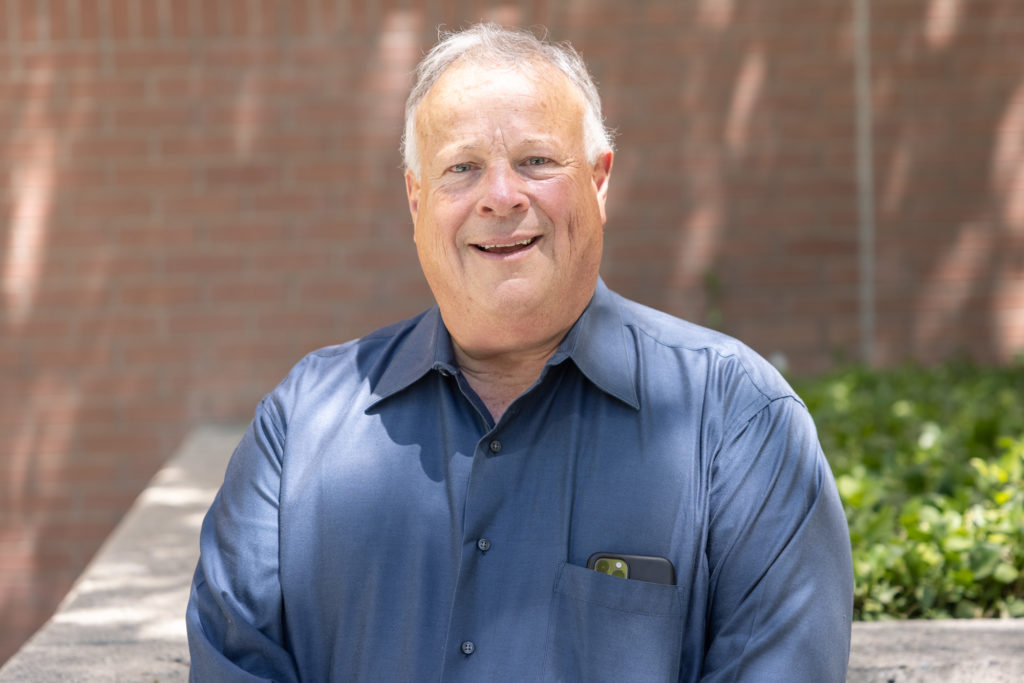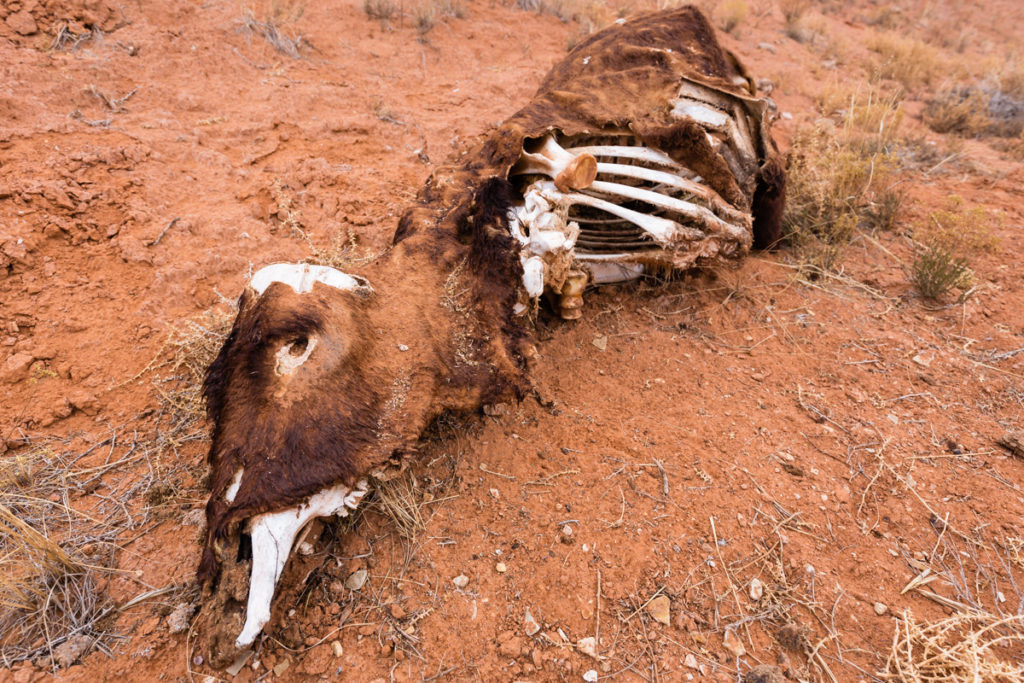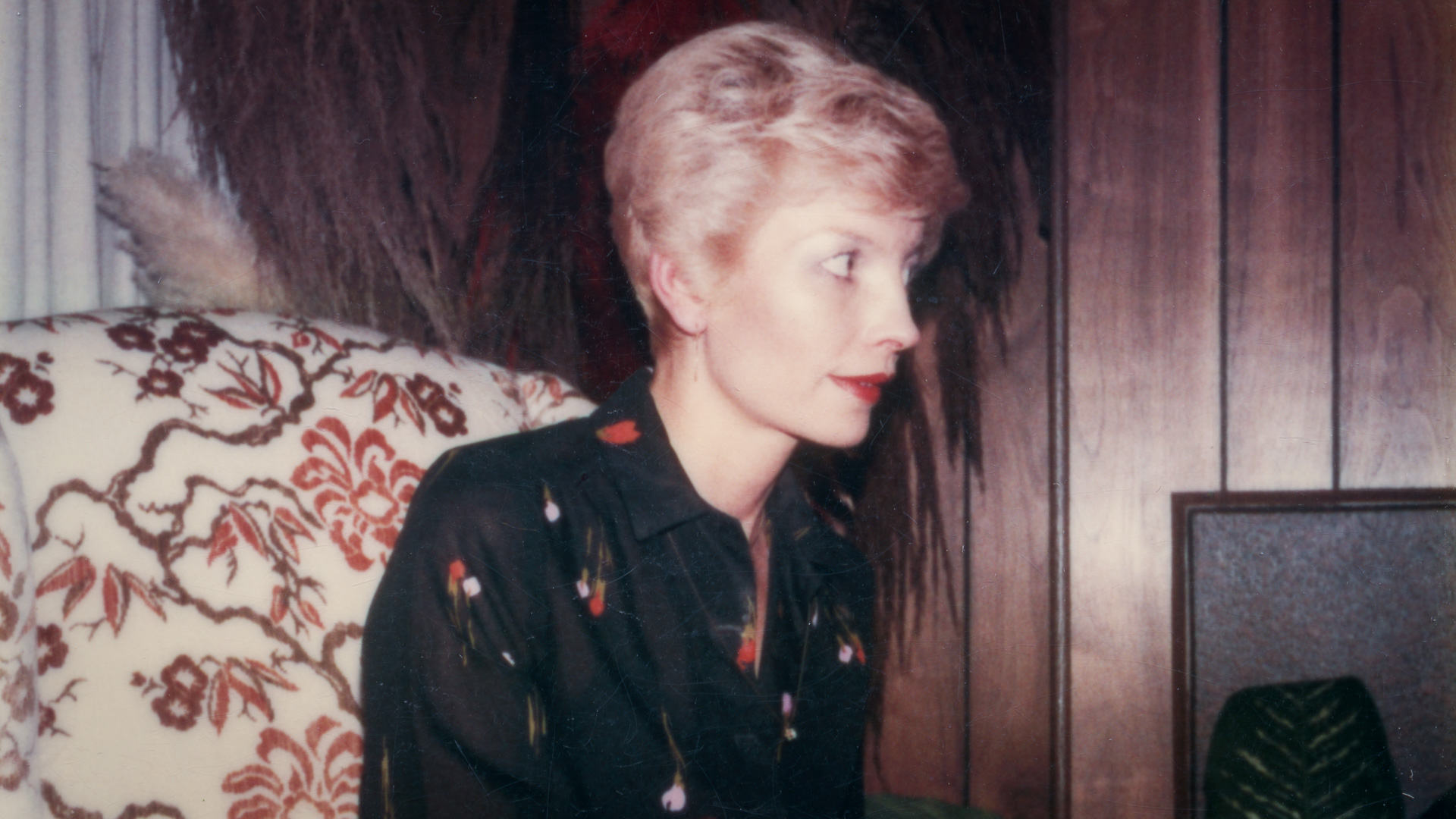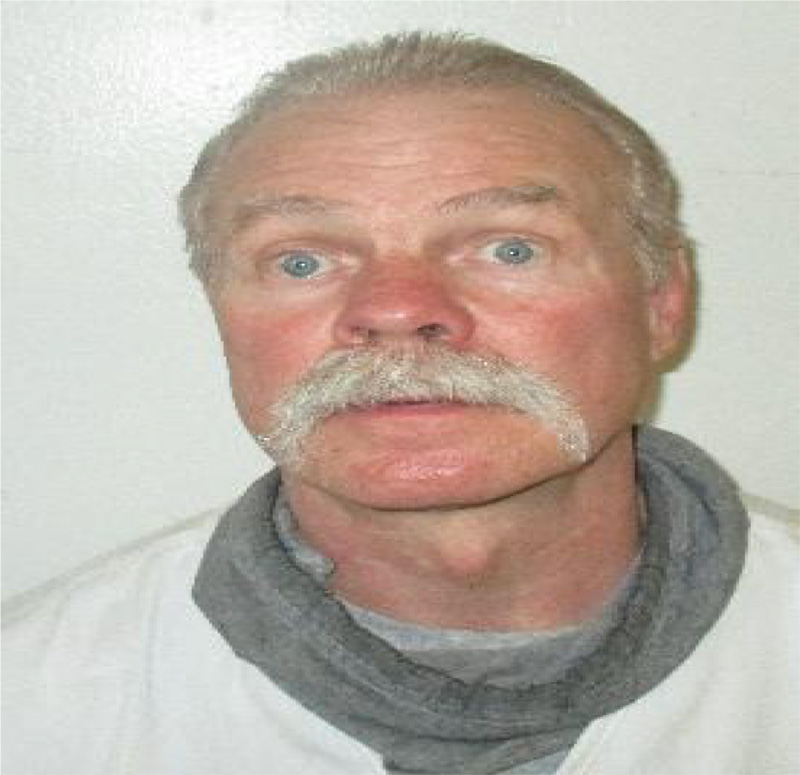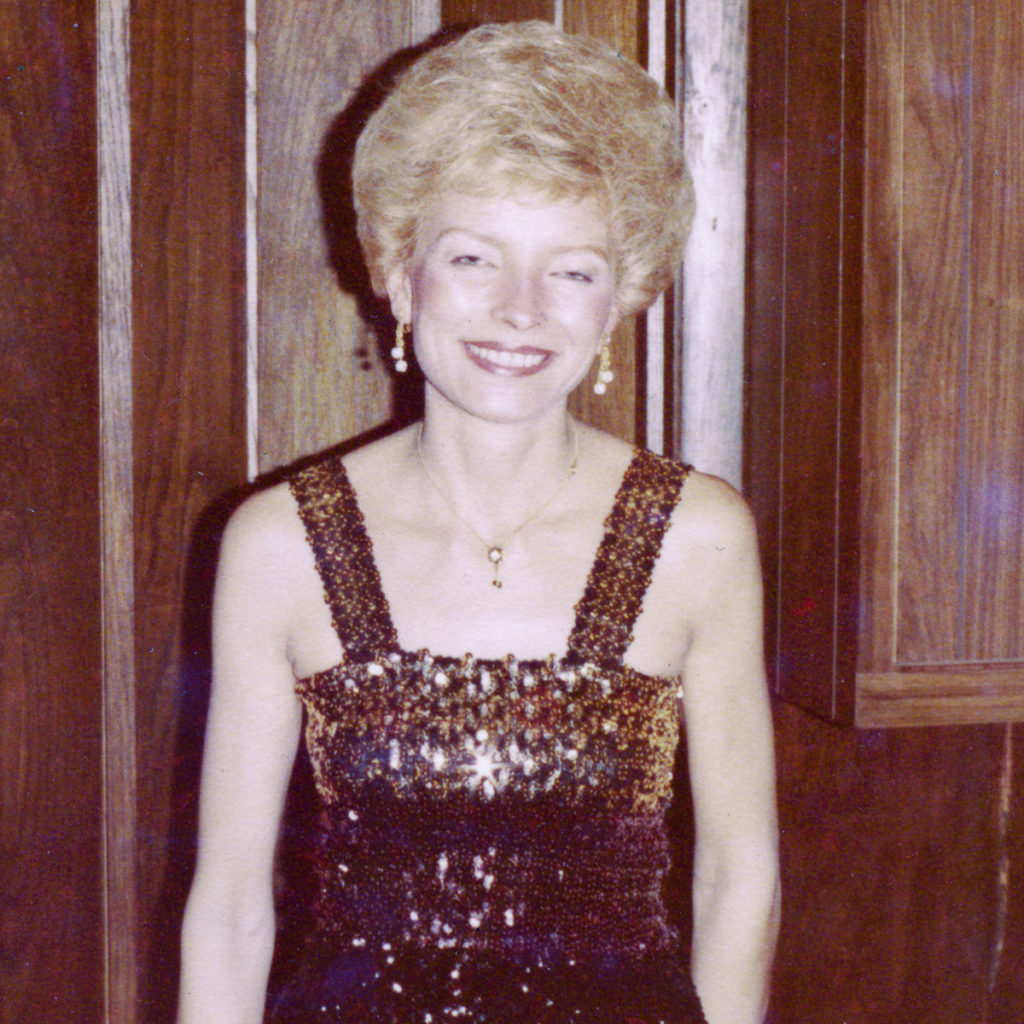(Sound of snowplows clearing snow)
Dave Cawley: Snowplows were out in the pre-dawn darkness. A significant winter storm was sweeping across much of the United States on the morning of Monday, December 7, 2009. It dropped snow from the Sierra Nevada to the Great Lakes. A few inches had already fallen on the floor of Utah’s Salt Lake Valley during the overnight.
Debbie Caldwell was up early, as she always was, preparing for the arrival of her daycare kids. They trickled in, shedding coats and caps, some still rubbing sleep from their eyes. They arrived with red, snotty noses from the sub-freezing cold, in the care of anxious parents who were bracing for a workweek that was starting off with a bad commute.
Debbie marked the time of each arrival on her log. Two of the kids — Charlie and Braden Powell — usually arrived like clockwork at 6:40 a.m. on Mondays, Tuesdays and Fridays.
Pick-ups in the afternoons were another matter. Josh, their dad, made a habit of showing up late or not at all. That could be blessing because he made the other parents uncomfortable. They had a nickname for Josh. They called him “rocks for brains.”
Debbie didn’t much care for Josh herself. She also didn’t care for clients who showed up late, but a little delay made sense that morning in light of the weather. She continued with the Monday routine, expecting Charlie and Braden to arrive at any minute. The clock ticked past 7 a.m., then 8. Still no sign of the Powells.
Debbie Caldwell: I was thinking “this is not like Susan” so I, umm, called the house and then, umm, when I didn’t get any phone call at the house I thought “well maybe she was running late to work or something and so Josh dropped her off and he’s running doing something else.” So I called her direct line at her job and didn’t get any answer there. And so then I called his work and they said he hadn’t shown up and so I became a little concerned because the week before, Susan had talked to my husband about how to fix the furnace and change the filters and get the furnace ready to go for the season. And so I became a little concerned that something was wrong and maybe they were in the house and they were suffering from carbon monoxide.
Dave Cawley: Debbie had her hands full, though. Even minus Charlie and Braden, six other kids needed her attention. Some were due at school. She loaded them into her van and hit the road. But concern nagged her. She decided to detour from the school rounds to Josh and Susan’s house. She pulled into the cul-de-sac, her van rolling partway up the driveway of the Powell house, making first tracks in the virgin snow.
Debbie Caldwell: There was no tire tracks coming out of the garage, there was no—
Kiirsi Hellewell: Footprints.
Debbie Caldwell: —footprints. So I pounded on the door and pounded on the door. I didn’t get any answer. So I was on a school run, I had other children that I was caring for and that I needed to get to school so I went back to, to my van and pulled up her emergency contact — it’s on the form. So I called the emergency contact, which was Jennifer Graves and then I went to uh, drop the kids off at school.
Dave Cawley: Jennifer Graves was Josh Powell’s sister.
Jennifer Graves: I woke up kinda feeling a little bit relieved and happy and looking forward to the future because we’d had a really hard year. We’d closed a business that was failing. We’d had some other significant issues with other family members. And that was just very difficult. And we felt like those things were being handled and behind us and we’d, we’ gone through the worst of it. And, and so I was pretty optimistic about the future. And then we got that phone call from Debbie and it was just devastating. Completely threw us for a loop again.
Dave Cawley: Jennifer told Debbie she hadn’t heard from her brother or sister-in-law that morning. She grabbed her kids and her mom, Terrica, and started driving the snowy roads north toward Josh and Susan’s house. Jennifer lived in West Jordan. That’s about a 15-minute drive away on a good weather day from Sarah Circle. While on the way, Terrica dialed 911. It was 9:53 a.m.
Terrica Powell (from Dec. 7, 2009 police dispatch recording): Umm, the, my son and his wife and their two children haven’t, uh, responded to anything this morning. They normally would go to work and take their children to the daycare two or two and a half hours ago. And they’re not responding to calls and they’re not responding to people pounding on their door and there’s no tracks coming out of their driveway, or there wasn’t a this morning, a little while ago when the daycare lady went over there.
Dispatcher (from Dec. 7, 2009 police dispatch recording): Are they out of town?
Terrica Powell (from Dec. 7, 2009 police dispatch recording): Uh, I haven’t had any, anything from them saying that they’d be out of town and it’s not like them to not call their daycare lady. They’re very dependable. They both work.
Dave Cawley: Like Debbie, Terri worried a furnace malfunction might have filled the house on Sarah Circle with carbon monoxide gas.
Terrica Powell (from Dec. 7, 2009 police dispatch recording): Uh, I’m about five minutes from the house now.
Dispatcher (from Dec. 7, 2009 police dispatch recording): Ok. Alright, I have them notified. They’re going to be enroute. They’re responding to 6252 West Sarah Circle, which is 3935 South.
Jennifer Graves: We arrived before the police and tried to see if we could get into the house. I sent my kids around into the back. Umm, no doors were open, we couldn’t get in.
Dave Cawley: West Valley City patrol officers Jerry Brady and Matt Rhodes were the first to arrive in response to the 911 call. They showed up within minutes, at 10:02 a.m. to find Terrica, Jennifer and her kids out front of the house.
They pounded on the door and shouted. No response. The officers checked all of the doors and windows. All were locked. They attempted to peer into the garage through a window there, only to find it blocked by a blanket. In fact, all of the windows were covered. The blinds in the large bay window on the front of the house seemed to sway, as if blown by hot air rising from of a furnace vent. More evidence of possible carbon monoxide poisoning.
Meantime, Jennifer was going door-to-door in the cul-de-sac, trying to find someone who might have recently talked to Josh or Susan. One neighbor gave Jennifer the name and phone number for Kiirsi Hellewell.
Kiirsi Hellewell: I didn’t have her in my contacts in my phone, I didn’t know who it was but I decided to answer it. And she said “this is Jennifer Graves, Josh’s sister. When’s the last time you talked to Susan?” And I was instantly, had this feeling of dread come over me and I was like “what do you mean? I just talked to her yesterday, we walked home from church together.” And she said “well she’s missing, they’re all missing, there’s no tracks at their house, none of us can find them, they’re not at work.”
Dave Cawley: Kiirsi and Susan were both members of the Church of Jesus Christ of Latter-day Saints and belonged to the same ward, or local congregation. Kiirsi told Jennifer about a Facebook post Susan had made on Sunday morning. It mentioned how Josh had won a Flip video camera from his work Christmas party on Saturday night.
Kiirsi Hellewell: And so we were afraid that since he loved taking pictures, maybe he had driven them up to the canyon and they’d gone of a cliff—
Debbie Caldwell: Or they’d slid and they were stuck in some ravine with the snowstorm.
Kiirsi Hellewell: —or were stuck somewhere and been there freezing all night.
Dave Cawley: The patrol officers were growing more concerned, too. They figured Josh, Susan and the boys were either unconscious in the house or hadn’t been home since the storm started during the night. They called for backup. A sergeant arrived and tried to use a device called a bump key to unlock the door but it didn’t work.
Short of options, the police turned to Terri and asked her permission to break a window. It took some convincing, but she finally agreed. It was 11:39 a.m.
Jessica (from Susan Powell voicemails): Hi Susan, it’s Jessica calling from Back to Health Chiropractic. I did have you scheduled with the boys today at 8:40. We haven’t seen or heard from you so we were just concerned. Hope nothing tragic has happened…
Richard (from Susan Powell voicemails): Hi Susan, Richard Grennan at Aspen. Uh, just looking for Josh and to make sure you guys ok. Uh, we have received a phone call from Josh’s dad I guess…
Mary Estep (from Susan Powell voicemails): Hey, it’s Mary. Umm, Josh’s sister is kind of freaking me out and I’m kind of stressing not hearing from you either so, give me a call…
JoVanna Owings (from Susan Powell voicemails): Hey Susan, it’s JoVanna…
Judy Cox (from Susan Powell voicemails): Hi Susan, it’s mom. It’s Monday in the afternoon, so, December 7th.
Montage (from Susan Powell voicemails): Susan, we’re all worried sick, we need to hear from you… Susan, it’s 10, 5 to 6… Hey Susan, I’m just uh, worried about you and thinking of you… Y’know a lot of us are worried about you. We love you. I hope, I really hope everything turns out ok. If you are ok, please do call me. And I’ll talk to you soon.
Dave Cawley: This is Cold, Episode 4: Find Susan. I’m Dave Cawley.
[Ad break]
Dave Cawley: Those voices you just heard came from messages left on Susan’s cell phone the day she disappeared: December 7th. Let’s go back to that day and to the house on Sarah Circle. West Valley police Sergeant Terrence Chen wriggled through the broken window and found himself in the front room of the Powell house. The first thing he noticed were two fans aimed at wet spots on the carpet and couch. They were what was causing the blinds flutter, not hot air from the furnace.
(Sound of small box fan)
Dave Cawley: A stereo had been left on. It blared a broadcast from a local radio station. Toys were scattered around the floor. Stepping over the mess, Chen came around a loveseat to the front door. He unlocked it, allowing the rest of the officers to enter. They began searching room by room. The upstairs bedrooms were all empty. So was the basement. Checking the garage, the officers noticed the family’s minivan was gone. Terrica and Jennifer came inside to see if anything looked amiss.
Jennifer Graves: While I was at the house I’d had this overwhelming feeling that he’d done something to her already. Because I’d seen her purse there, I’d gone through it. Her driver’s license, her Sam’s Club card, her temple recommend, they were all in the purse. Why would she walk away without that? Y’know, that just seemed like a very abnormal thing for her to, to do for any significant length of time.
Dave Cawley: Jennifer called Susan’s dad, Chuck Cox.
Jennifer Graves: I don’t know how he felt about that, you know. I was trying to be calm, but I’m not sure if my panic was a little bit apparent or not.
Chuck Cox: I got a call from Jennifer, Josh’s sister, wanting to know if I’d heard from her — Susan. And I said “well no.” “Has she called you? Ok.” And she told me “well, we can’t find her right now.” They don’t know, haven’t heard from the family for Sunday, Monday, whatever. They hadn’t heard from them. I called my wife and asked her if she’d, if Susan’d called her. No, she hadn’t. “Ok.” But I was sure that just, somehow the phone died or whatever it was, something simple. Or they had to take a child to the doctor and we’ll hear from ‘em later today. Of course, that never came.
Dave Cawley: Officer Brady went back to his patrol car and radioed dispatch, asking them to look up a plate number for the missing minivan. They verified it hadn’t been involved in any crashes that morning. Dispatch also contacted local hospitals, to see if Josh, Susan, Charlie or Braden had been admitted. Nothing.
Josh’s mom told police she’d called both Josh and Susan’s workplaces. She gave them the phone numbers. Both Aspen Logistics and Wells Fargo Investments confirmed Josh and Susan had been scheduled to work but both were absent, no-call, no-show.
Brady called both Josh and Susan’s cell phones. Each went straight to voicemail. It seemed less likely with each passing minute that the disappearance was an accident. So, at about half past one in the afternoon, the officers decided to call in a detective.
[Scene transition]
Dave Cawley: Ellis Maxwell had always wanted to be cop, at least as far back as he could remember. He’d grown up hearing stories about the job from his father’s dad. He saw the uniform and heard tales of heroism. Even as a boy, he’d wanted to be a part of it.
Ellis Maxwell: At the beginning of my career, I was dead-set working for West Valley City police department. A couple of reasons: I had a lot of interaction with them, uh, living in West Valley, good and bad. Y’know, I was a juvenile. I got in trouble a couple of times.
Dave Cawley: Like what?
Ellis Maxwell: I got arrested for possession of alcohol one time. Jesse Cassanata was the officer. He was my school cop and I learned a lot from him. He was a great school resource officer and I learned a ton from him and he’s probably a big contributor as to why I got into police work as well.
Dave Cawley: None of the offenses were serious enough to derail his ambitions. In 1995, while Josh Powell was attending community college, Ellis enrolled in the police academy. He paid his own way, hoping to make himself marketable to a department. If that ended up being his home town of West Valley, all the better. But he knew the odds were against him.
Ellis Maxwell: Because in the academy they told us, ‘look, you may or may not get a job. Like, it’s tough.’ And it was like that. I mean, you’d go interview, or go test somewhere and you’d have hundreds of applicants, at times thousands.
Dave Cawley: Ellis graduated the academy, cleared his certification exams and prepared to enter the world of law enforcement. He sent out job applications. The job market, as the academy had warned, was ver tight. Ellis saw West Valley was hiring. Not the police department, but instead in the city’s code enforcement division.
Ellis Maxwell: So I put in for that thinking ‘hey, get in, get my foot in the door,’ right? Get my foot in the door, do a bang-up job, apply for the police department, transfer over. (Laughs) Sounds pretty easy. Not the case.
Dave Cawley: Code enforcement was not glamorous work. Ellis had to chase down abandoned shopping carts and issue citations for junky yards. But the job kept his certification active. Before long, he took a second job as a reserve officer in the mountain resort town of Park City, home to world-famous ski resorts and the Sundance Film Festival. Working the equivalent of two full-time jobs put a huge strain on Ellis and his young family.
Ellis Maxwell: We had our first child in December of ’97 and so I think it was around the spring of ’98 that uh, they still wanted me to work these hours and I couldn’t and so I quit.
Dave Cawley: His dream remained getting a gig as an actual officer in the West Valley police department. He applied again and again and again. The persistence did lead to an interview, which ended without Ellis getting the job. He reached out to a friend in the department, who told Ellis he was just too soft-spoken.
Ellis Maxwell: So then the next time I interviewed, I didn’t get the job. And so I went to him again. I said “hey, what did I do wrong? How can I become better?” And he told me the same thing, “you’re too soft-spoken.” And I said “that’s what you told me last time.”
Dave Cawley: He applied a third time and cleared the interview, only to be washed out by an out-of-state contractor’s psych evaluation.
Ellis Maxwell: At that point, I was done. I was just, three strikes. I’m fed up. Fed up with the government, the way they operate. I mean, this is just ridiculous.
Dave Cawley: Around that time, Ellis learned Park City was hiring again. He’d enjoyed his time as a reserve officer there and figured joining the active duty force would be a good step up from the drudgery of code enforcement. He quit West Valley, took the Park City job and prepared to move on from his dream of wearing the blues in his boyhood hometown.
Ellis Maxwell: So I was there and, (laughs) well West Valley’s hiring again. So, I was like “alright, give this one more chance,” right? So I put in. I passed the interview but administration in Park City knew I had an interview before I did. (Laughs)
Dave Cawley: Word, it appeared, tended to get around among Utah’s police brass. One of Ellis’ superiors at Park City advised him to tell the chief about his upcoming interview with West Valley. Ellis thought that was a bad idea.
Ellis Maxwell: I’m not going to go to the chief and be like “hey, thanks for hiring me but just to let you know, I’m looking at West Valley and I’ve got an interview with them.” That’s just ludicrous. And so I didn’t and I guess the chief was very upset and from that point forward, my short stint at Park City full-time, it was uh, not good.
Dave Cawley: The chief asked Ellis to resign. He couldn’t understand. He’d done good work for Park City. So he refused.
Ellis Maxwell: And he just, he got pissed and he stood up and he slammed his fist on the desk and “you’re fired!” And I was like “wow, I’ve never been fired before.” So I left and I was driving down the canyon of Parleys and my wife at the time was pregnant and was due in two or three months and I don’t have a job. She was not working. I own a house and, y’know, got all this. I’m like “this is nuts.” And ironically, West Valley code enforcement hires me without a bat of an eye. They give me my pay, they give me my seniority.
Dave Cawley: The experience left Ellis disillusioned. He figured it was time to change course, to go back to school and learn a new trade. Maybe, he thought, he’d go into construction. Then a friend, a retired officer, put a bug in his ear.
Ellis Maxwell: He said “hey, West Valley’s hiring. You should apply.” And I said “I’m think I’m done.” Like, I’m done.
Dave Cawley: No, he wasn’t.
Ellis Maxwell: He talked me into it. And I went into that interview, I didn’t care. Like, I didn’t wear a tie. I wore jeans. I wore a button-down shirt. I didn’t shave. I didn’t do anything polite, like what you’re supposed to. “Please have a seat.” No, I sat down when I wanted to sit down. I answered their questions and then when they said “do you have any questions for us,” I said “no.” I got up and walked out.
Dave Cawley: This was not the same soft-spoken young man who had three times applied and three times been rejected.
Ellis Maxwell: I came out and I was in City Hall and I passed one of the sergeants and they’re like “don’t tell me you just interviewed.” And I was like “yeah.” I said “I don’t care. I mean, a lot of you folks know who I am, my work ethic. If you want to hire me, hire me. If not, screw it.” And I left and I got the job.
Dave Cawley: At last, Ellis had achieved his dream. He was a West Valley City police officer. He made a plan: stay in West Valley and spend long enough on the job to qualify for his police pension.
Ellis Maxwell: So the whole goal was to get in, do 20 years, retire, experience as much of police work as I could. Work as many assignments as I could and uh, if I was still sane, alive, get out.
Dave Cawley: It was September of 2001. As the dust of the Twins Towers settled in New York City, Ellis hit the streets on patrol in West Valley. A year and a half later, he joined the investigations division and became a school resource officer at Granger High. In 2006, the department moved him onto child sex abuse cases.
Ellis Maxwell: So I wasn’t really too thrilled but it was an opportunity to take on a new challenge and I did. And I did that job for almost two years. I left there in 2008.
Dave Cawley: Ellis faced a crossroads. He’d spent enough time in the trenches by that point to qualify for a promotion. He didn’t particularly want to become an administrator, but figured he could make sergeant and ride that rank to retirement. On the other hand, a colleague told him the major crimes division was shorthanded.
Ellis Maxwell: And he’s like “hey, why don’t you come over and join the team?” And I was like “no, absolutely not. I know what you guys do.”
Dave Cawley: Major crimes handled violent cases: robberies, shootings, that kind of stuff. They were also the homicide squad. Ellis’d done enough work over the years supporting major crimes to know it was a stressful gig.
Ellis Maxwell: So I knew what they did, I knew they were busy and I told him “absolutely not.” One, I don’t like the smell of dead people. Two, I like my time off, right? I’m like “I have no desire.” And he kind of kept talking to me about it and talking to me about it. And I kind of thought about it and I thought “maybe, maybe it is a little too early to promote.”
Dave Cawley: Ellis moved to major crimes in May of 2008. He was still there on the morning of December 7, 2009, when a family of four turned up missing.
[Scene transition]
Dave Cawley: The commute to work that morning was a doozy.
Ellis Maxwell: It dumped at least, I don’t know, eight inches of snow. Started snowing probably about three o’clock in the morning and, and snowed into the commuting hour and uh, there was a lot of snow. And a lot of people, anybody that watched the news, stuff like that, knew this storm was coming in.
Dave Cawley: Ellis made it to work in spite of the weather.
Ellis Maxwell: The morning was just like any other morning. I went into the office, I sat down, I believe I was reviewing a robbery case, a bank robbery case.
Dave Cawley: He hadn’t been at it for long when he was interrupted.
Ellis Maxwell: The sergeant at the time, kind of a boulstery Philadelphian individual, right, opens up the squeaky door, walks in and you can already smell him coming, right? The cologne he wore. And he comes up behind me and he’s like “eh, yo Ellis, what are you doing?” It’s like, “just doing my job, man,” right? “Working on this robbery case.” “Alright, well I need you to go out and help patrol on a missing family.”
Dave Cawley: Ellis picked up the phone and called the patrol officers who were out at the Sarah Circle house. They gave him Josh and Susan’s names, the address and briefed him on what’d happened so far. He spent about an hour just doing research.
Ellis Maxwell: I look and I can’t find anything on these people, right? There’s no criminal history. There’s nothing in our report database. I think there was like a traffic accident like awhile back but nothing serious, right?
Dave Cawley: No signs of prior domestic violence, no 911 calls from the house, no criminal history for either Josh or Susan. Nothing. So, Ellis headed to the house.
Ellis Maxwell: So when I get out there, umm, y’know it’s frigid cold and there’s, y’know, patrol officers everywhere. And there’s, there’s family and friends and neighbors.
Dave Cawley: The patrol officers shared what little they knew. The last anyone had heard from the Powells was about noon the day prior. They hadn’t said anything to anyone about taking a trip. Ellis took a walk inside the house.
Ellis Maxwell: There was no sign of a struggle inside the residence, so there wasn’t like tipped-over nightstands and broken lamps or broken dishes or anything like that. Like, any signs of a domestic violence, like a physical domestic violence. There was no sign of a robbery.
Dave Cawley: All of the doors and windows were secure, with the exception of the glass the patrol officers had smashed.
Ellis Maxwell: There was two box fans that were set up in the front room. One was at one end of the front room, the other was at another end and they were in operation.
Dave Cawley: One of the fans sat across the living room from the couch, against the west wall that separated the living room from the kitchen. The other was by the north wall, near the entertainment center. The two fans were 90-degrees off-axis from another but pointed at the same spot: the foot of the couch.
Ellis Maxwell: Some believe that it was blowing on the carpet. But the reality was it was blowing on maybe the carpet but also the couch. It was very obvious that the couch had been cleaned, where the love seat hadn’t.
Dave Cawley: Ellis poked around a little more. He noticed a Flip camera on a shelf, still sealed in its packaging. It was the prize Josh had won from his work party on Saturday night. There went the theory that the family had gone out to test their new toy. He moved down the hallway to the master bedroom.
Ellis Maxwell: There was a vacuum sitting in the middle of the floor. There was a steam cleaner and more importantly, Susan’s purse is sitting in there and undisturbed. Right? Like, her wallet’s in there, her ID’s in there, her keys are in there. Y’know, after we looked through it you could tell there’s no credit cards missing or anything like that. No cash is missing. She had jewelry in the bathroom and in the bedroom. None of that appeared to be missing. If somebody was going to rob the place, they’re not going to pick out jewelry and then put it back nicely, right?
Dave Cawley: It was all very odd. Ellis called dispatch and had them place Josh, Susan, Charlie and Braden, as well as their van, on NCIC. That’s the FBI’s National Crime Information Center database, a system cops from across the nation use to share information about cases. If officers anywhere in the country encountered the Powell family, he’d hear about it immediately. He made other calls.
Ellis Maxwell (from December 7, 2009 Susan Powell voicemail recording): Hi Susan, this is detective Maxwell with West Valley City police department. If you could give me a call back, I’d appreciate it. You can call…
Ellis Maxwell: I’ve called Susan’s phone, I called Josh’s phone. They both go directly to voicemail. They don’t ring so that’s a clear indication we all know the phones are off.
Dave Cawley: Terri, Josh’s mom, told Ellis she and Jennifer were Josh and Susan’s only relatives in Utah. She alluded to some friction in their marriage but glossed over the details. Kiirsi Hellewell offered a more damning account. As one of Susan’s closest friends, she was privy to more of the couple’s private life. She told Ellis how Susan had struggled to make peace with her husband over his falling away from their religion. She described Josh as controlling and verbally abusive.
Ellis talked to Debbie, the daycare provider, who described how she’d kicked off the whole thing that morning. He talked to Susan’s mom and Josh’s dad, both of whom were in Washington. Judy Cox hadn’t heard from Susan since the prior Thursday. Steve Powell said he’d last spoken to Josh the day before at around noon, when Josh had called asking for a pancake recipe. Both confirmed the couple had not made any plans to visit family in Washington.
One of the neighbors approached Ellis as he sat in his car talking to Josh’s dad.
Ellis Maxwell: And she came and walked over to my car and I kind of had to give her the one finger, like “hold on.” And I finished my conversation with Steve Powell, rolled my window down and uh, she shares with me that she just talked to Josh Powell. … And I thought to myself “ok, I don’t know who you are” for starters, right? And, y’know I’ll be honest with you, I don’t know how much credibility to give this gal. Right? Like, I mean, you’ve got family, friends, the police that have called and left messages and you’re the one that’s talked to Josh Powell. (Laughs)
[Scene transition]
Dave Cawley: JoVanna Owings didn’t want the spotlight.
JoVanna Owings: I don’t want to be famous for being the last person to see Susan Powell alive, you know.
Dave Cawley: Like it or not, she was. JoVanna’s son Alex had babysat for Josh and Susan the night of Saturday, December 5th, when they went to Josh’s work Christmas party. The next afternoon, on Sunday the 6th, Susan called JoVanna after church.
JoVanna Owings: The blanket that she was working on for one of her boys, the yarn was all messed up and she asked if I could come over and help her with, you know, untangling it. And I said, “sure.” And then, in the background, I could hear Josh saying, “well she could stay for lunch, but we just have enough for her.”
Dave Cawley: JoVanna accepted the invitation. She went over to the Powell house at about 2:45 in the afternoon and sat with Susan in the living room. Josh had Charlie and Braden in the kitchen, where he was making pancakes. When they were ready, he brought Susan and JoVanna their individual servings.
JoVanna Owings: And while Susan and I ate and were talking, he then cleaned up the kitchen, put all the dishes in the dishwasher.
Dave Cawley: Susan noticed her husband doing the chores without being asked — a rare occurrence.
JoVanna Owings: He may have very well been putting on a really good show for me, that uh, he was a loving, caring husband. And I bought it.
Dave Cawley: At one point, Josh even came and draped a blanket around Susan’s shoulders.
JoVanna Owings: I thought that was nice, but you know I’ve seen husbands that act that way, so I didn’t realize that that was not a normal thing for Josh.
Dave Cawley: Susan told JoVanna she believed she’d miscarried the month prior. JoVanna didn’t want to press and decided to ask her about it later, when the boys were out of earshot.
JoVanna Owings: Then she said she was, she was feeling tired. And I thought, “well that’s perfectly natural.” She’s going all week long and if she did miscarry then she’ll be a little tired-er. Anyway, so she said she was going to go, umm, just lie down for a little bit in, in the bedroom. And I was like “ok, that’s fine.”
Dave Cawley: It was about 4:30. JoVanna kept working on the tangled yarn. Josh told her he was going to take the boys sledding. JoVanna was focused on the knot and didn’t take the hint.
JoVanna Owings: And then he says, “well I really need to lock the front door when I leave.” And then I got it and was like, I should probably leave then. So I cut the yarn and took the uh, messed up yarn home to untangle. And I said, “well, I should have this finished by this evening.” And, and he said, “well, there’s no hurry just give it to her on Tuesday, on her day off.” And I was like “ok, fine.”
Dave Cawley: At about 5:30, JoVanna watched Josh pull out of the driveway in his minivan with both Charlie and Braden in their carseats. Then, she went home. JoVanna received a text message from her neighbor Kiirsi Hellewell the following afternoon, on Monday, December 7th. It said no one had seen or heard from Josh, Susan or the boys since noon on Sunday.
JoVanna Owings: I knew that that was wrong because I’d been there that afternoon and had left early evening.
Dave Cawley: JoVanna had Josh’s cell phone number because her son Alex sometimes babysat the Powell boys.
JoVanna Owings: So I called Josh on my phone and he didn’t answer. And then my son called him on his phone and Josh answered. And he, my son immediately hung up. And I said, “why did you do that? Everyone is worried about where they are. Call him back.”
Dave Cawley: Cell phone logs would later show it was 3:02 p.m.
JoVanna Owings: He called him back and Josh answered and he handed the phone to me and I said, “Josh, where are you? Everybody’s worried. Nobody’s seen Susan. They said she didn’t go to work. You need to get home.” And so he said he was out south and he’d be home soon. And I was just like, “ok whatever.” And we hung up and that was that.
Dave Cawley: JoVanna shared all of this with Detective Maxwell, letting him know Josh and the boys were back.
[Scene transition]
Dave Cawley: But there was no word about Susan. Josh’s mom and sister Jennifer had left Sarah Circle and gone home by that point.
Jennifer Graves: We were just honestly a little bit in shock, numb, not knowing what to do, and we just sat around waiting.
Dave Cawley: Jennifer’s phone rang just before 5:30 p.m. The caller ID showed it was Josh. She answered and shouted into phone, asking Josh where he’d been and if Susan was with him. Josh said he was at work and he had the boys. They were fine. Jennifer said she knew that wasn’t true. He wasn’t work. Ok, alright. Josh admitted he’d taken the boys camping but said they’d been stranded by the snowstorm.
Jennifer asked again “where’s Susan?” Josh said she was at work. Again, Jennifer challenged the lie. She told Josh Susan had not gone to work. Her voice climbed and she shouted “where is she?”
“I don’t know,” Josh shouted back. Then, he asked “what do you know?”
The question caught Jennifer off guard. She was afraid her brother had done something terrible.
Jennifer Graves: So that feeling had just come over me while I was at the house. And when he’d called that night, it was disturbing. Disturbing to talk to him and to realize that that premonition was actually valid.
Dave Cawley: Jennifer lowered her voice, fighting to keep her composure.
Jennifer Graves: Ok, I don’t actually want him to run. He has two innocent little babies with him. And I, y’know, I wanted them to make it back. Y’know, we wanted them. And so I backed off. I calmed down (laughs) and I just kind of gave him a little bit of the gist of the situation: “there’s a cop at your house, we broke the window, they’re guarding the house.” Basically, I wanted to make it sound as benign as possible. And so “let’s meet there” y’know and uh, and “we’ll see where to go from there.”
Dave Cawley: Josh agreed to return home. Jennifer grabbed her coat, went to the car and drove back to Sarah Circle. Along the way, she called Ellis and told him what’d happened. They met outside of the Powell house, expecting Josh to join them. Minutes ticked by with no sign of the family’s blue minivan. Ellis dialed Josh’s number but he didn’t answer.
Jennifer Graves: We’re all sitting in that circle in our vehicles just waiting, and finally Ellis comes over and is like, y’now, is like “why don’t you just give him a call?” (Laughs)
Dave Cawley: Jennifer did, then handed her phone to Ellis. It was 5:48 p.m.
Ellis Maxwell: And he answers and I tell him, y’know identify myself and tell him “Josh, you need to come home.” And I verify with him, “is Susan with you?” “No, she’s at work.” “Ok, well you need to come home. We have been at your home now for eight hours, nine hours, whatever. You need to get here.” … Josh replies “I need to go feed my kids, we need to go get” — and then he ignores me and starts asking his kids, “kids what do you want? Do you want pizza, do you want hamburgers?” And at this point I’m really frustrated because he is, he just has that “I don’t care attitude,” right? And so I tell him, I said, and I was more I guess forceful with my words and I told him “you need to come to the house.” Like, “you need to come here now, your kids can eat here, but you need to get here.”
Dave Cawley: Josh said “ok.” Ellis asked how soon he’d arrive and Josh said he wouldn’t be long. But Josh didn’t show up until about 6:40 p.m., almost an hour later.
Jennifer Graves: So, Josh is just taking his sweet time. I think uh, I don’t even know what was going through his head. But he, y’know, he was getting the kids food. And I, y’know, bbut how long does that take? Stop at McDonald’s and grab them a bite to eat so they aren’t starving and screaming. And there are cops at your house. Doesn’t that feel a little urgent?
Dave Cawley: More than three hours had elapsed since Josh had first made contact, answering the call from JoVanna’s son. Ellis met the minivan as it rolled to a stop in the cul-de-sac.
Ellis Maxwell: He clearly can’t get into his driveway with all the cop cars and everything and I approach the passenger side of the, the vehicle and he rolls down the window and I ask him, y’know, “where the hell have you been” right? Like, “I talked to you an hour and a half ago.”
Dave Cawley: Ellis caught a whiff of grease and pepperoni.
Ellis Maxwell: He’d stopped at Little Caesar and bought ‘em pizza. … I asked him why he hadn’t returned anybody’s phone calls, why he hadn’t been answering his phone. He told me it was off and I asked why his phone was off. He said he was trying to preserve the battery ‘cause he didn’t have a charger. And at this time as I’m talking to him looking in his vehicle, there’s a charger that’s plugged in. So, there’s a couple of cues, y’know, that are there but at the end of the day, it’s not enough that you can put handcuffs on him and say “ok, we’re going to jail.”
Dave Cawley: Ellis told Josh they needed to talk. He asked him to drive over to the police department’s west side substation, just a few blocks up the road. He didn’t want to give Josh any other opportunity to delay.
[Scene transition]
Dave Cawley: At the substation, Ellis set out a digital audio recorder and got right to the point.
Ellis Maxwell (from December 7, 2009 police interview recording): Do you know where Susan’s at?
Josh Powell (from December 7, 2009 police interview recording): Hmm.
Ellis Maxwell (from December 7, 2009 police interview recording): No?
Josh Powell (from December 7, 2009 police interview recording): No.
Ellis Maxwell (from December 7, 2009 police interview recording): When’s the last time you seen her?
Josh Powell (from December 7, 2009 police interview recording): Probably about midnight of last night.
Ellis Maxwell (from December 7, 2009 police interview recording): Where at?
Josh Powell (from December 7, 2009 police interview recording): At home.
Ellis Maxwell (from December 7, 2009 police interview recording): What was she doing? What was she wearing? Where was she at in the house?
Josh Powell (from December 7, 2009 police interview recording): Umm. (Clears throat) She was wearing… (long pause) …she was just wearing something comfortable.
Dave Cawley: That’s the actual recording of the interview. As you can hear, Josh wasn’t very forthcoming.
Ellis Maxwell (from December 7, 2009 police interview recording): And obviously, everybody’s concerned. Everybody’s worried about all four of you. I mean we started getting phone calls at 10 o’clock this morning.
Josh Powell (from December 7, 2009 police interview recording): I apologize. I didn’t even know that was happening, I apologize. That, umm, like I say, we got snowed in and there’s just no cell service so it killed my phone, y’know?
Ellis Maxwell (from December 7, 2009 police interview recording): Mmhmm.
Josh Powell (from December 7, 2009 police interview recording): It just tries harder and it dies, y’know?
Ellis Maxwell (from December 7, 2009 police interview recording): Mmhmm.
Josh Powell (from December 7, 2009 police interview recording): Umm, in fact, I actually turned it off to try to save the battery.
Dave Cawley: Ellis made note of the “battery” excuse again, but didn’t call attention to it. Instead, he asked Josh to describe everything that’d happened over the last 48 hours. Josh said Susan had gone to church with the boys on Sunday, then returned home around noon. He went to the grocery store to buy stuff for lunch. Susan invited JoVanna to come over while he made pancakes and omelets.
He said Susan had taken a nap after lunch. JoVanna stuck around until about 5:30. Here, Josh’s and JoVanna’s stories diverged. Josh claimed he remained home when JoVanna left, contradicting her eyewitness account that Josh left the house at the same time with both boys.
He told Ellis he was home at about 6:30 when Susan woke up, ate a hot dog dinner and then settled down for another nap with Braden. At that point, Josh said he took only Charlie sledding.
They came back at about 8, at which point Josh read a book to Charlie and put him to bed. Then Susan gave him a chore to do, at 10 p.m. on a Sunday night.
Josh Powell (from December 7, 2009 police interview recording): She wanted me to clean the couch, so I did and then we watched…
Ellis Maxwell (from December 7, 2009 police interview recording): What do you mean by clean the couch?
Josh Powell (from December 7, 2009 police interview recording): Just get rid of all the kid’s goobers and stuff.
Ellis Maxwell (from December 7, 2009 police interview recording): So like, what? With a washcloth or something or an upholstery cleaner?
Josh Powell (from December 7, 2009 police interview recording): Umm actually, I have a Rug Doctor.
Ellis Maxwell (from December 7, 2009 police interview recording): Ok, so you used the Rug Doctor and cleaned the couch?
Josh Powell (from December 7, 2009 police interview recording): Yeah.
Ellis Maxwell (from December 7, 2009 police interview recording): ‘Kay.
Dave Cawley: The Rug Doctor, the same one Ellis had seen in the master bedroom that afternoon. Josh said he’d set up the fans in order to dry the couch after cleaning it, to keep mildew from forming. Ellis wanted specifics about the camping trip. Josh told him Susan had known about it and was okay with it.
Ellis Maxwell (from December 7, 2009 police interview recording): ‘Kay. And where did you drive to, you said Pony Express?
Josh Powell (from December 7, 2009 police interview recording): Umm, well I started heading south through Tooele and just turned onto the Pony Express.
Ellis Maxwell (from December 7, 2009 police interview recording): Mmhmm. And that’s, how far down the Pony Express did you go?
Josh Powell (from December 7, 2009 police interview recording): Not very far. (Pause) Maybe 20 miles, I don’t know.
Ellis Maxwell (from December 7, 2009 police interview recording): Twenty miles on the Pony Express?
Josh Powell (from December 7, 2009 police interview recording): Maybe.
Ellis Maxwell (from December 7, 2009 police interview recording): Ok, did you just stop on the side of the road or stay on the road when you went down there? Is that where you just drove straight to from your house?
Josh Powell (from December 7, 2009 police interview recording): Pretty much, yeah.
Ellis Maxwell (from December 7, 2009 police interview recording): Pretty much. Where’d you stop in between?
Josh Powell (from December 7, 2009 police interview recording): Well, I mean no, that’s it.
Ellis Maxwell (from December 7, 2009 police interview recording): Well, pretty much I mean that’s—
Josh Powell (from December 7, 2009 police interview recording): Sorry. (Nervous laugh)
Ellis Maxwell (from December 7, 2009 police interview recording): —I mean “pretty much” means you stopped somewhere else. So—
Josh Powell (from December 7, 2009 police interview recording): No, I, I, I don’t, I just went straight there.
Ellis Maxwell (from December 7, 2009 police interview recording): You drove straight to the Pony Express? Ok.
Dave Cawley: Josh’s answers were all but useless.
Ellis Maxwell: Any time I would ask him certain questions, the answers I got was “I don’t know,” “I don’t remember” or it was silence or he would try to deter the conversation a different direction. Such as when we sat down in the west side precinct there and he would turn his attention to his kids to avoid questioning.
Dave Cawley: Charlie and Braden continually interrupted.
Ellis Maxwell: Yeah, it was definitely a mistake on my end. I should have left those kids with Jennifer and Terrica.
Ellis Maxwell (from December 7, 2009 police interview recording): Stuff like that.
Charlie Powell (from December 7, 2009 police interview recording): Daddy, do you have paper money?
Ellis Maxwell (from December 7, 2009 police interview recording): (Clears throat followed by annoyed chuckle)
Josh Powell (from December 7, 2009 police interview recording): Charlie, we’re not going to buy pop out of that machine.
Ellis Maxwell: We did get a domestic violence advocate to eventually sit down and kind of entertain the kids but Josh was not pleased with that and it diverted his attention even more.
Dave Cawley: But what else could they do? Josh wasn’t under arrest and didn’t have to be there. Forcing the issue with the boys might have ended the interview.
Ellis Maxwell: The last thing I want is him to not talk to me.
Dave Cawley: So Ellis dealt with the situation as best as he could.
Ellis Maxwell (from December 7, 2009 police interview recording): So when you got to your destination 20 miles, possibly 20 miles down the Pony Express, what uh, did you stay on the road, did you pull off on the side of the road?
Josh Powell (from December 7, 2009 police interview recording): No, they have trails that you can drive on. And—
Ellis Maxwell (from December 7, 2009 police interview recording): Mmhmm.
Josh Powell (from December 7, 2009 police interview recording): I mean, I just found one. And—
Ellis Maxwell (from December 7, 2009 police interview recording): How far off the trail did you go?
(Long pause)
Josh Powell (from December 7, 2009 police interview recording): I don’t know, a mile or something, I don’t know.
Dave Cawley: Josh told Ellis he’d mixed up the days in his head, that when he’d left on Sunday night he thought it was Saturday. He realized the mistake only after waking on Monday morning. By then it was too late to call his work and beg forgiveness.
Upon realizing the mistake, he drove around aimlessly for hours, to exactly where he couldn’t say, only stopping to make a fire so the boys could roast marshmallows.
Josh Powell (from December 7, 2009 police interview recording): Well, we drove further out the Pony Express—
Ellis Maxwell (from December 7, 2009 police interview recording): Mmhmm.
Josh Powell (from December 7, 2009 police interview recording): —umm to that campground—
Ellis Maxwell (from December 7, 2009 police interview recording): ‘Kay.
Josh Powell (from December 7, 2009 police interview recording): —and we turned around.
Ellis Maxwell (from December 7, 2009 police interview recording): ‘Kay.
Josh Powell (from December 7, 2009 police interview recording): Umm, when it got old, we drove back.
Ellis Maxwell (from December 7, 2009 police interview recording): When what got, when what? When it got old?
Josh Powell (from December 7, 2009 police interview recording): Yeah, I mean when we’d had our fill, when we were done. Well, the boys weren’t done but I was done.
Ellis Maxwell (from December 7, 2009 police interview recording): Mmhmm.
Josh Powell (from December 7, 2009 police interview recording): So, then we drove back.
Ellis Maxwell (from December 7, 2009 police interview recording): What time was that at?
(Long pause)
Josh Powell (from December 7, 2009 police interview recording): I don’t know, maybe 2.
Ellis Maxwell (from December 7, 2009 police interview recording): That’s when you started coming back home?
Ellis Maxwell (from December 7, 2009 police interview recording): Yeah.
Dave Cawley: On the way home, he stopped at a carwash in the city of Lehi. That didn’t make a whole lot of sense. The roads were still covered in salt, slush and grime from the snowstorm. Ellis wanted to know which carwash but Josh said he wasn’t sure. After washing the car, Josh said he drove north to Susan’s work.
They only had the one car so Josh typically took Susan to work each morning and sometimes picked her up in the afternoon. They only had the one car. He couldn’t explain how she might’ve made it to work that morning, considering that he had the minivan out in the desert.
Ellis asked Josh about his marriage.
Josh Powell (from December 7, 2009 police interview recording): I mean, y’know, it’s pretty good. I mean… (Pause) We sometimes have disagreements but—
Ellis Maxwell (from December 7, 2009 police interview recording): ‘Kay.
Josh Powell (from December 7, 2009 police interview recording): —y’know.
Ellis Maxwell (from December 7, 2009 police interview recording): Everybody has disagreements, right?
Josh Powell (from December 7, 2009 police interview recording): I think so.
Ellis Maxwell (from December 7, 2009 police interview recording): So nothing—
Josh Powell (from December 7, 2009 police interview recording): It’s not like, it’s not like we get into screaming fights or anything.
Ellis Maxwell (from December 7, 2009 police interview recording): Yeah?
Josh Powell (from December 7, 2009 police interview recording): Well, not usually. It’s happened a couple of times—
Ellis Maxwell (from December 7, 2009 police interview recording): Yeah.
Josh Powell (from December 7, 2009 police interview recording): —but, y’know, it’s very, very rare.
Dave Cawley: Oh come on. That was not true. Ellis held his cards close, not revealing the stories he’d already heard from Kiirsi, Jennifer and others.
Ellis Maxwell (from December 7, 2009 police interview recording): You guys only have one—
Josh Powell (from December 7, 2009 police interview recording): We see a counselor.
Ellis Maxwell (from December 7, 2009 police interview recording): What do you see a counselor, the, what do you see a counselor for?
Josh Powell (from December 7, 2009 police interview recording): Umm…
Ellis Maxwell (from December 7, 2009 police interview recording): Like a marriage counselor?
Josh Powell (from December 7, 2009 police interview recording): Yeah, just a marriage counselor. Just, y’know, working out issues.
Ellis Maxwell (from December 7, 2009 police interview recording): What kinds of issues are those?
Josh Powell (from December 7, 2009 police interview recording): Umm. (Pause) Well uh… (Pause) I mean, frankly she has kind of a temper.
Ellis Maxwell (from December 7, 2009 police interview recording): ‘Kay.
Josh Powell (from December 7, 2009 police interview recording): Umm, and I guess sometimes I’m lazy.
Ellis Maxwell (from December 7, 2009 police interview recording): ‘Kay. So that led you guys to marriage counseling?
Josh Powell (from December 7, 2009 police interview recording): Yeah, and I wasn’t going to church. Apparently it bothered her a lot so, so I’ve been going to church.
Dave Cawley: Ellis asked Josh to name his wife’s closest friends. His first answer was Debbie, their daycare provider. He offered a few other names, including Linda from Susan’s work. He didn’t know, or didn’t want to offer, Linda Bagley’s last name.
Ellis Maxwell: Which makes it challenging, right? ‘Cause you can’t challenge his answers ‘cause he’s not giving you too many lies, if any, just “I don’t know, I don’t remember.”
Ellis Maxwell (from December 7, 2009 police interview recording): Let me tell you something. I mean, you’re kind of being helpful but you’re not being helpful ‘cause I’ve been married and I know who, I mean I could tell you who my wife’s closest friends are.
Josh Powell (from December 7, 2009 police interview recording): Umm, she’s talked to—
Ellis Maxwell (from December 7, 2009 police interview recording): You know what I’m saying? And I actually know who her closest friends are and you’re telling me that you can’t tell me?
Dave Cawley: Ellis’ reserve of patience had run dry.
Ellis Maxwell (from December 7, 2009 police interview recording): First we’re taking a report at 10 o’clock—
Josh Powell (from December 7, 2009 police interview recording): Well, I think she would go to work.
Ellis Maxwell (from December 7, 2009 police interview recording): Alright, well she didn’t go to work, dude.
Josh Powell (from December 7, 2009 police interview recording): I mean, I think she would try to go to work.
Ellis Maxwell (from December 7, 2009 police interview recording): ‘Kay well, she didn’t even try to go, well I don’t know. She didn’t go to work. She wasn’t at work. She didn’t go to work at all today. So…
(Long pause)
Josh Powell (from December 7, 2009 police interview recording): Seems like she would have gotten up, gotten ready.
Ellis Maxwell: It was super frustrating because as a detective, you obviously want them to answer truthfully, ideally. You want them to answer truthfully, you want ‘em to confess. Those are the things you want. It doesn’t happen. They’re gonna lie. And when they do provide those lies, you tuck it away and you later bring it back up. Right? You let ‘em tell their story and then bring it back up and go “ok, look this answer doesn’t fit and this is why.” And he wouldn’t allow that.
Dave Cawley: Ellis had never encountered someone quite like Josh in his career. Nothing he tried seemed to shake him.
Ellis Maxwell (from December 7, 2009 police interview recording): Where’s her cell phone at?
Josh Powell (from December 7, 2009 police interview recording): I don’t know.
Ellis Maxwell (from December 7, 2009 police interview recording): You don’t know where her cell phone is? Ok.
Dave Cawley: Did you catch the doubt in Ellis’ voice there? Remember that, it will prove important in just a moment.
Ellis Maxwell (from December 7, 2009 police interview recording): So what are you thinking? What do you think I should, where should I start looking? What should I start doing? What do you think I should do?
Josh Powell (from December 7, 2009 police interview recording): Do you have a, do you have a line to the hospitals?
Ellis Maxwell (from December 7, 2009 police interview recording): It’s already been done.
(Long pause)
Josh Powell (from December 7, 2009 police interview recording): I don’t know, I’ve never dealt with this.
Dave Cawley: That was about the closest Josh came to expressing emotion. But he didn’t ask for Ellis’ help finding Susan. He didn’t offer any ideas on where she might have gone, either. They were getting nowhere. Ellis cut to the point.
Ellis Maxwell (from December 7, 2009 police interview recording): You didn’t take her out to Pony Express with you guys?
Josh Powell (from December 7, 2009 police interview recording): No.
Ellis Maxwell (from December 7, 2009 police interview recording): And the last time you seen her was at midnight last night.
Josh Powell (from December 7, 2009 police interview recording): It was after midnight, yeah.
Ellis Maxwell (from December 7, 2009 police interview recording): And you haven’t seen her or talked to her since.
Josh Powell (from December 7, 2009 police interview recording): No.
Dave Cawley: Straight answers, at last. But were they the truth?
Ellis Maxwell (from December 7, 2009 police interview recording): Ok, well I want to check, I want to check your van. Can I check your van? Can I search it?
Josh Powell (from December 7, 2009 police interview recording): Search it? Like—
Ellis Maxwell (from December 7, 2009 police interview recording): Mmhmm.
Josh Powell (from December 7, 2009 police interview recording): I guess so.
Ellis Maxwell (from December 7, 2009 police interview recording): Well, it’s yes or no. That’s why I’m asking.
Josh Powell (from December 7, 2009 police interview recording): I mean, you’re just saying look through it?
Ellis Maxwell (from December 7, 2009 police interview recording): Mmhmm.
Josh Powell (from December 7, 2009 police interview recording): Yeah, I mean, I think so.
Ellis Maxwell: He’s reluctant, he’s hesitant. Y’know “what are you looking for, why do you need to do this?” And y’know, I explain to him “look, it’s just protocol, man.” Like, “your wife’s missing. You’ve been gone and you don’t know where she’s at. We need to look in your van.”
Dave Cawley: Ellis gave Josh a consent form, which he signed.
Ellis Maxwell: He does with the agreement that he will stand by and stop us at any time. So, you gotta do what you gotta do. And uh, so he signs and we go out and we start looking through his van.
Dave Cawley: Ellis and his partner Gavin Cook lifted the tailgate and opened all the doors. Josh plopped down in the driver seat. A blue plastic tarp was spread across the floor in the back, as if to keep the carpet clean. On the left, were tools, including a wood-handled shovel, a rust-flecked metal rake and a yellow-bristled broom. Next to those sat a humidifier and a dusty plastic tote…
Ellis Maxwell: Totes that have just ridiculous amounts of unopened camping equipment that you would find in Kmart or Walmart.
Dave Cawley: In the tote were a poncho, a mylar emergency blanket, a tablecloth, tent stakes — but no tent— toilet paper, a mosquito coil and a multi-tool, among other knick-knacks. You can see a picture of all this at thecoldpodcast.com.
To the right of the tote was a blue plastic toboggan. Stacked inside it were an orange heavy-duty extension cord, an electrical circular saw, a razor box-cutter and a folding hand saw. By the sled and in front of the tote were a red, five-gallon plastic gas can and a Yamaha gas-powered generator.
Ellis Maxwell: This guy has all kinds of stuff back there.
Dave Cawley: In the rear passenger seats, the detectives found a comforter from a queen-size bed and other blankets, as well as extra clothing for Charlie and Braden. A storage compartment behind the driver’s seat held a box of blue nitrile gloves.
The front passenger seat was covered with clutter. A half-empty box of graham crackers sat in the footwell, along with a scarf which Susan had likely crocheted. A red onesie covered with Scooby-Doo characters was draped across the center console, between the two front seats, along with a camera bag.
Ellis Maxwell: But the most interesting thing that was discovered is in the console. … So when you open the console in this minivan, there’s like a tray, right? So you can put some change or small items. Well if you remove that tray, the console goes much deeper and you can put bigger items in there. … And we find a pink Motorola cell phone.
Dave Cawley: “Who’s phone is this?” Detective Cook asked. He held it up for both Josh and Ellis to see.
Ellis Maxwell: And he looks and he is like a deer in the headlights and he, he just, he can’t speak. And he says, he doesn’t say anything. And then I say to him, I’m like “Josh, why do you have Susan’s cell phone?” And he’s like “umm,” and he starts stumbling. He’s like, he says something to the effect of “well, I borrowed her phone, I borrowed her phone yesterday because I needed cell phone numbers, I needed cell phone numbers out of it and I must have put it in my pocket and forgot.” (Laughs) Just the most ridiculous answer ever.
Dave Cawley: Why was it ridiculous?
Ellis Maxwell: Hypothetically, if this is truthful, you would have known that you had it and you put it in the console. So if you did leave it in your pocket, at some point you pulled it out of your pocket and you put it, and you buried it in the console. Like, you didn’t just set it on top, you didn’t just leave it sitting in the car, you didn’t put it in the jockey box. You buried it in this console.
Dave Cawley: Not only that, but Josh had twice called Susan’s number just that afternoon to leave her voicemails. Why would he do that if he knew he had her cell phone? Josh said he’d forgotten it was there.
I asked Ellis why he didn’t arrest Josh right that moment.
Ellis Maxwell: Yeah, why isn’t that enough? Umm, y’know, you can’t, you can’t go into a courtroom and, and stand on the bench and tell, uh, the defense attorney that “hey, we have a no body situation here. We have her cell phone. The husband was in possession.” Nah, it’s not gonna fly. There’s no way. You’ve gotta be able to prove that he is responsible for either murdering her or kidnapping her or he’s responsible for her disappearance. And being in possession of a cell phone, y’know, just not gonna fly.
Dave Cawley: He said it’s different with two strangers. Having some random person’s cell phone after they disappear could well be enough evidence. But Josh and Susan were husband and wife. A defense attorney could spin any number of scenarios to explain away Josh having the cell phone.
Ellis Maxwell: Also, you’ve gotta take into consideration that they had one vehicle.
Dave Cawley: Frustrating as it was, Ellis handed Josh the keys to the van. Josh gathered the boys, loaded them into their carseats and drove home. Ellis followed him to the house and had him do a walk-through to make sure nothing was missing. Josh said everything looked fine.
It was about 9:30 p.m., nearly 12 hours since Josh’s mom had first called 911. Looking back, Ellis regrets not writing a search warrant for the house and minivan that night.
Ellis Maxwell: Myself and the sergeant and my partner that was assisting at the time, y’know, we discussed it. It’s like, y’know, “can we get a search warrant right now?” And the decision was no. Let’s have him come back in the morning and do another interview and go from there.
Dave Cawley: It was a judgement call, arguably the wrong one. To this day, Ellis isn’t sure serving a warrant that night would have changed anything.
Ellis Maxwell: But it was a learning experience as well because I’ll tell you what, from that day forward if I questioned if I needed a search warrant for a residence or a home, I wrote it. And I submitted it. We’ll let the judge make that decision.
Dave Cawley: Ellis handed Josh his card, told him to find a babysitter for the boys and meet him at police headquarters for a follow-up interview in the morning. Josh said “ok” and agreed to be there by 9 a.m.
Ellis had learned his lesson about Josh using his sons as a distraction. He repeated that Josh should make immediate arrangements with Terri or Debbie, the daycare provider, to take the boys. But Josh did neither. Debbie, it turned out, had stopped by the house while Josh was at the substation.
Debbie Caldwell: I went back and there was a police car in the driveway just sitting there. And I guess what happened is that they were, they, once they broke the window, they had to keep the property secure. And so they hadn’t said anything to me so I contacted Jennifer the next day and she was the one that told me Josh had come back with the boys. And I said “oh, they’re ok then” and she said “well, I’m not sure, Susan wasn’t with them.” And I’m like “what do you mean, Susan’s not with them?”
Dave Cawley: Susan’s friend Kiirsi could not believe it, either.
Kiirsi Hellewell: And I found out sometime around 9 or 9:30 Monday night because a neighbor of his called me and they said “Josh is back.” And I said “oh thank goodness, are they ok” and she said “well, he and the boys are there but Susan isn’t” and I immediately said “what did he do?” That was my first thought, what has he done.
Dave Cawley: On the next episode of Cold…
Ellis Maxwell (from December 8, 2009 police interview recording): Your children are telling our detectives that, uh, mom went with you guys last night and that she didn’t come back.

